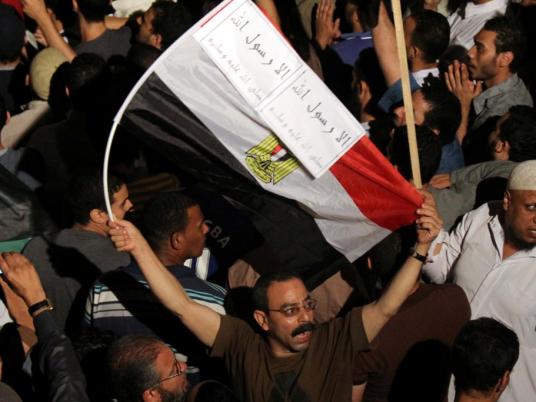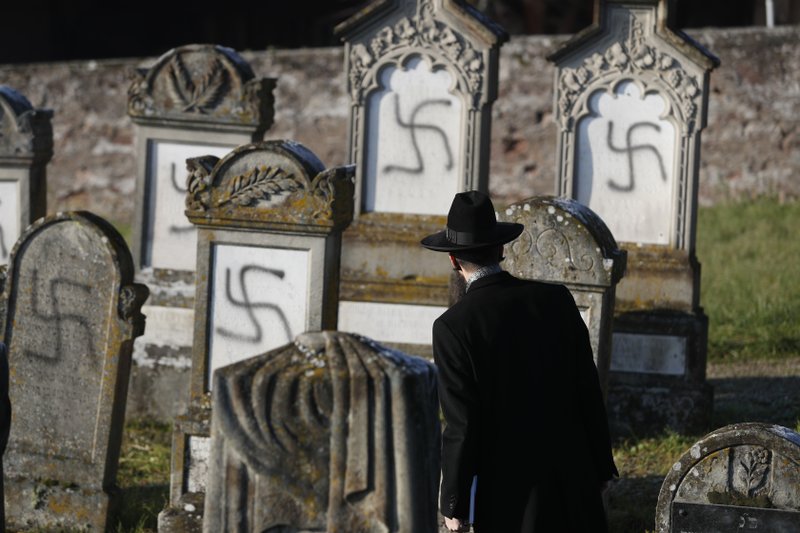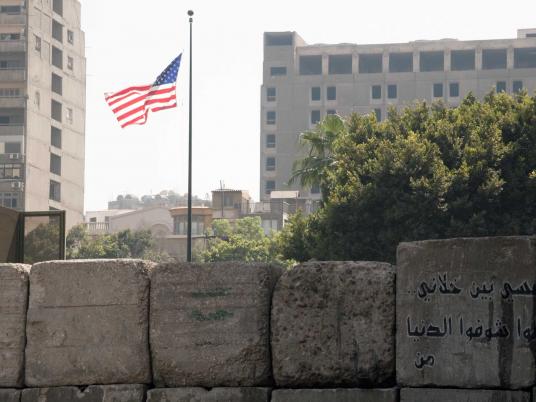
Following protests outside the US Embassy in Cairo, reactions to the anti-Islam film that recently surfaced on the Internet continue to pour in, now on the official level.
The film, which was produced in the US, created outrage across the Middle East because of its portrayal of Islam and the Prophet Mohamed. In Cairo on Tuesday, protesters climbed the outer wall of the US Embassy and burned the American flag, while four employees at the American Consulate in Benghazi, including the US ambassador to Libya, were killed in an attack on the consulate that left it in flames. On Thursday morning, there was an explosion outside the US Embassy in Sanaa.
State-run Al-Ahram focuses on the actions taken by President Mohamed Morsy and his government in response to the film.
According to the paper, Morsy asked the Egyptian Embassy in the US to take “all the necessary legal measures in response to those who attempt to sabotage the relations between nations,” in reference to those involved in making the film.
The government, led by Prime Minister Hesham Qandil, has also demanded that the American government take firm action against the film's producers. In a statement released Wednesday, Qandil said that the film violates human values and shows that its makers are petty and unethical, Al-Ahram reports.
The state-run daily says that the public prosecutor put the names of Pastor Terry Jones and nine Egyptian Christians living abroad on a watchlist for Cairo airport arrivals due to their alleged involvement with the film.
The presidency issued a statement saying that Egyptian society, including Muslims and Christians, is against attacks on sacred figures, asserting at the same time that the state is responsible for securing all public and private properties and diplomatic delegations. The government will firmly oppose any attempts to break the law, Al-Ahram quoted the statement as saying.
Demonstrations outside the US Embassy in Cairo escalated Wednesday night into a standoff between protesters and Central Security Forces during which the latter fired tear gas and the protesters burned cars.
Freedom and Justice, the Muslim Brotherhood mouthpiece, focuses on the outrage over the film rather than the violent public reaction, which was condemned by the US government.
The main headline reads, “International outrage at insult of the Prophet.” On the front page, the paper reports Morsy’s response to the movie and asserts that he condemns the killing of the US ambassador in Libya.
Columnist Mohamed Arafa warns in the paper under the headline “Mistakes in front of the embassy,” that the public may fall into a trap of those attempting to portray Muslims as terrorists. Despite his call for self-restraint and rational behavior, Arafa himself insults Christians living abroad in his column and weaves an elaborate conspiracy theory that could create sectarian tension in Egypt.
“I am afraid that the fools diaspora — meaning the Coptic diaspora — in collaboration with the Jews of America have succeeded in a well-plotted plan to damage the image of the Muslims in front of the world on the anniversary of 9/11 and that the cheap, offensive film that they have produced, sponsored by the alleged Coptic state and, as revealed by the Wall Street Journal, funded by an Israeli real estate mogul, was only a trap for Muslims as part of a satanic plan to keep portraying Muslims as hating America and the West and supporting Bin Laden and Al-Qaeda.”
Local press has widely blamed Copts abroad for the film, but conflicting reports have been published both locally and among international media about the actual identity of the film's producers.
In the independent Al-Shorouk newspaper, the majority of the columns address the film and the public response in Egypt and Libya. All the columns revolve around the same idea: that the violent public reaction has only served to further support the misconceptions about Islam presented in the film.
Along these lines, columnist Emad Eddin Hussein writes, “congratulations to Maurice Sadek and the Zionists,” referring to the Copt living in the US who is believed to be involved in promoting the film.
Meanwhile, Al-Shorouk columnist Wael Qandil asks, “Do we have to kill to prove we love our Prophet?”
In a column entitled “Between anger and stupidity ” in the independent daily, Ahmed al-Sawy writes, “There’s a big difference between anger and stupidity, because anger can be invested to turn a crisis into something beneficial, but stupidity only allows obscure, insignificant people to benefit at our expense and become famous and influential.” Sawy points out that the film never would have achieved international attention if it weren’t for the violent reactions in the Middle East.
Egypt’s papers:
Al-Ahram: Daily, state-run, largest distribution in Egypt
Al-Akhbar: Daily, state-run, second to Al-Ahram in institutional size
Al-Gomhurriya: Daily, state-run
Rose al-Youssef: Daily, state-run
Al-Dostour: Daily, privately owned
Al-Shorouk: Daily, privately owned
Al-Watan: Daily, privately owned
Al-Wafd: Daily, published by the liberal Wafd Party
Youm7: Daily, privately owned
Al-Tahrir: Daily, privately owned
Freedom and Justice: Daily, published by the Muslim Brotherhood's Freedom and Justice Party
Sawt al-Umma: Weekly, privately owned
Al-Arabi: Weekly, published by the Nasserist Party
Al-Nour: Official paper of the Salafi Nour Party



